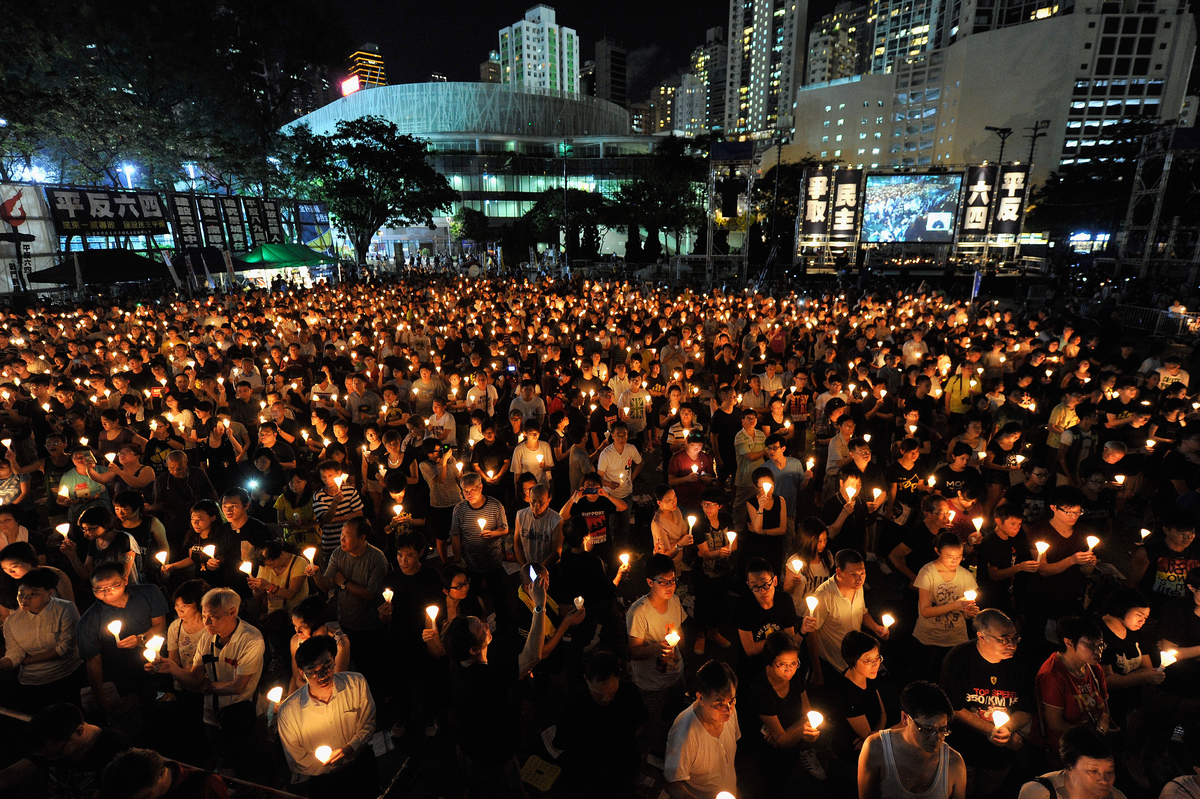
For nearly three weeks, the protesters kept up daily vigils, and marched and chanted. Western reporters captured much of the drama for television and newspaper audiences in the United States and Europe.
On June 4, 1989, however, Chinese troops and security police stormed through Tiananmen Square, firing indiscriminately into the crowds of protesters.
Turmoil ensued, as tens of thousands of the young students tried to escape the rampaging Chinese forces. Other protesters fought back, stoning the attacking troops and overturning and setting fire to military vehicles.
Reporters and Western diplomats on the scene estimated that at least 300, and perhaps thousands, of the protesters had been killed and as many as 10,000 were arrested.
Bodies of dead civilians lie among mangled bicycles near Beijing's Tiananmen Square, June 4, 1989

Chinese troops and tanks gathered in Beijing, June 5, 1989, one day
after the military crackdown that ended a seven week pro-democracy
demonstration on Tiananmen Square

The savagery of the Chinese government’s attack shocked both its allies and Cold War enemies.
Soviet leader Mikhail Gorbachev declared that he was saddened by the events in China. He said he hoped that the government would adopt his own domestic reform program and begin to democratize the Chinese political system.
In the United States, editorialists and members of Congress denounced the Tiananmen Square massacre and pressed for President George Bush to punish the Chinese government.
A little more than three weeks later, the U.S. Congress voted to impose economic sanctions against the People’s Republic of China in response to the brutal violation of human rights.
Participants hold candles as they take part in a candlelight vigil to commemorate the anniversary of the 1989 Tiananmen Square Crackdown on June 4, 2015 in Victoria Park, Causeway Bay, Hong Kong. Hong Kong residents held a candlelight vigil to mark the 26th anniversary of the student-led Tiananmen protest.

No comments:
Post a Comment